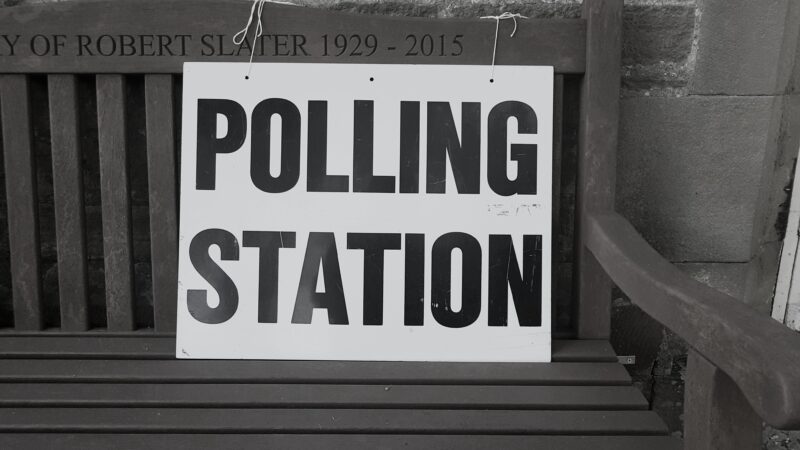On the majesty of Britain’s unwritten constitution
In light of Boris Johnson’s recent attempts to cling onto his own personal power, many within the media commentariat have proposed the idea of a written and entrenched constitution. Such a solution is historically ignorant: as will be developed in the succeeding paragraphs, the miracle of Britain’s constitution is that its conventions have weathered all storms and continue to stand strong today. Whether it be the unequivocal adherence to Erskine May or the continued existence of Habeas Corpus, Britain’s conventions are to be proud of and cherished. For utopians, too blindly obsessed with rationalism and rigorous state planning, Johnson’s escapades provide the perfect alibi for constitutional reform. But they are as wrong as they have always been, even in the interesting times in which we live.
Many of these misguided pundits have suggested that the answer to Britain’s political woes is that it should look to the various nations across Europe and the West that decided long ago to adopt a codified and entrenched constitution, but what does such a constitution actually look like? For one, all the key constitutional provisions would be drawn up in a single document which would then be protected by a court of law. This would inevitably go far further than the current Supreme Court which only considers the principles laid down in the Human Rights Act (1998) which are, of course, in line with the European Convention of Human Rights. All future laws would be required to stand in compatibility with this document. Any executive which desired the alteration of this document would be naturally required to achieve a super-majority within parliament.
For a considerable amount of time, such an idea has stood at the forefront of many constitutionalists’ minds. Given the fact that the British public tend to spend more time worrying about the accessibility of public services, rather than constitutional issues, the idea of a written constitution has not quite permeated through to the masses. Brexit for many may have been about the sovereignty of the United Kingdom but the constituent vote that tipped the scale in favour of withdrawing from the European Union saw the threat of mass migration on public services. Why is it that the growth of the Eurosceptic movement peaked only a few years following a financial crash? It is unwise to use worn out clichés, but Bill Clinton was correct in asserting that “It’s the economy, stupid.”
This, however, may not remain the case. Class dealignment and the absence of any real proletariat movement has shifted many people’s interests away from economic issues and towards constitutional and political issues instead. With the insistent obsession amongst media apparatchiks, the Prime Minister’s drawn out occupation of No.10 Downing Street has really lit a touch stone amongst the British public. Johnson has rightfully been described as someone who throws caution into the wind when bending the rules to further the interests of himself or, in some cases, the British public. To list a few of his more provocative actions over the last three years, he prorogued parliament, watered down the ministerial code and restricted certain forms of protest. The point of this article is not that his actions were wrong, but rather that they have inspired a rejuvenation amongst radicals to further pursue constitutional reform. It is perfectly reasonable to desire high levels of robust executive scrutiny and accountability but codifying the law is not the way that one should go doing about it.
Even in an age in which nation-states increasingly subscribe to the same hegemonic notion of what a liberal democracy should look like, Britain remains nearly alone in that the roots of certain constitutional elements can be found centuries ago. Exemplifying this perfectly is the fact that the bicameral nature of parliament grew eventually out of the 8th century practice of Witan-based council rule. Even if one takes a strictly anti-anachronistic view of history, the first official parliament was called in 1236, a few years subsequent to the signing of the Magna Carta. The unique majesty of Britain’s constitution is that its legitimacy is found in virtue of its longevity. Such a system, when working effectively, is both natural and superior to any other constitutional format. A system built upon the trust of politicians to uphold constitutional conventions is both perennially fragile yet also preferable to anything else.
Yet, such an argument for the maintenance of our constitution has to be framed with the recent Westminster scandals in mind. As is already becoming apparent, the ongoing Conservative Party leadership election will have a great focus upon propriety and ethics within politics. Candidates, whose prior lives fell short of the squeaky-clean standards expected of them, will be faced with a considerable uphill battle. Media pundits love to jump on the bandwagon of criticising Sir Keir Starmer for being too boring but the reality is that, after the last few years of political chaos, much of the British public will want a prime minister who is serious and trustworthy, even if that means being a bit on the dull side. Ordinary people do not want to go about their lives worrying about politicians; they have far bigger concerns. As a result, I suspect that the next few prime ministers will bend over backwards to ensure individual decency and political stability.
On a different point, it is worth refuting the conservative argument which can be made for a written and entrenched constitution. Such a constitution would prevent radicals from unwisely or unthinkingly bringing a sledgehammer to the political system. One has only to look at the toxic legacy of New Labour. Admittedly, even David Cameron, a Conservative prime minister, attempted to abolish the House of Lords with a simple majority within the House of the Commons. It is perfectly true to argue that the preservation of a particular constitutional setup would remain existent for a long time if codified and entrenched behind a naturally conservative law court. However, if moderation is a fundamental conservative principle, then to alter the constitution in such a dramatic and radical way, even in an old-fashioned or nostalgic manner, would be, by definition, an unconservative thing to do. Purely in a hypothetical conservative utopia, a written constitution would be naturally the constitution of choice. We don’t live in a utopia though; we live in reality.
In contrast to the unwritten and uncodified dignity of Britain’s ancient constitution, the American constitution is constantly the source of unnecessarily bitter political debate and congressional blockage. If one were to take the second amendment, the right to keep and bear arms, there is still a decades-old, unresolved debate around whether or not to alter it. Discussions around laws that may appear to violate such amendments centre around whether or not the law is constitutional, rather than whether the law would actually be effective in practice. Debating the constitutionality of federal states banning the right to an abortion is an entire debate in itself and not one that an Englishman should necessarily engage with, however the recent decision to overturn Roe vs Wade does raise an interesting point. Following British tradition, it is far better that law-based decisions are determined by elected politicians, not by unaccountable judges. This point was rightfully raised at the despatch box by Dominic Raab while deputising for Johnson. To be a 21st century conservative, one must commit to upholding the democratic will of the people. Despite the influence of pro-Atlanticist conservatives, it is wrong to look to the USA as a political model.
Despite the temptations of a written constitution, politicians and activists must remain ever vigilant in their defence of Britain’s unwritten constitution. In order for our political system to develop naturally, prominent conservatives must put aside any admiration they may have for the American system and stand strong against historically-ignorant reformers. Preserving the way in which things are done is one of the core building blocks of being a conservative. This principle cannot be undermined by constitutional reformers, even if they are paradoxically trying to prevent radical reform. The checks and balances within the British political system have survived far worse than Johnson.










Current Criticism on Austen: An Overview of the Norton Critical Pride and Prejudice, 4th Ed.’s Back Material
“Short and easy will be the task of the mere biographer. A life of usefulness, literature, and religion, was not by any means a life of event…to the little disappointments incidental to human life was never added, even for a moment, an abatement of good-will from any who knew her.”
No, this quote does not refer to the late Queen Elizabeth II—though several aspects of it, from the humble understatement to the positive rapport among her acquaintances, could just as well describe the late monarch (ignoring the lacking a “life of event” part) as they do its actual subject, Jane Austen.
Written by her brother Henry and included as a preface to the posthumous volume containing Northanger Abbey and Persuasion, the brief biography is one of the many resources found in the 2016 Norton Critical Edition (the fourth) of Pride and Prejudice, edited by Donald Gray of Indiana University and Mary A. Favret of Johns Hopkins. Besides confirming that one cannot understand Austen without understanding her, as he puts it, “thoroughly religious and devout” faith (another parallel between Austen and Her Royal Highness, and many others), the biography gives several details that lend insight into not only P&P but Austen’s other novels, as well.
This is, of course, the purpose of Norton Critical Editions, which I have used since my first essay as a California kid at Oxford (due on a Monday after meeting my tutor on Friday). The Norton Alice’s Adventures in Wonderland, bought, read, and cited in a two-day scramble, saved my grade that weekend, and it still graces my bookshelf for whenever I or mine might need it.
While pieces contemporary with the books’ printings, like the above biography, letters from the author to family and friends, and subsequent reviews at the time (for P&P from Scott, C. Bronte, Emerson, Twain, and others) provide a great context, as a student I found most useful the critical excerpts included in each edition, which attempt to give an up-to-date view on the literary conversation surrounding a certain work. For undergraduates who may not know where to look for sources on a certain author, I usually suggest Norton Criticals (and, by God, the several-page-long Selected Bibliography in the back—my brother and sister in Christ, THEY DO YOUR WORK FOR YOU), if only as a primer for larger critical discussion.
But the editions aren’t, and shouldn’t be, limited to the student; indeed, fans of Austen (or whom have you) might wear down their editions faster and more thoroughly than the student who buys it for a two-week paper. Although written with the academic in mind, works like Norton Critical Editions might very well contribute to the canon being preserved outside of the university, providing, as they do, the tools for a historical and critical understanding of one’s favorite work.
Literally one of the greatest novels ever written, and second in my mind only to The Brothers Karamazov, qua novel, Pride and Prejudice needs no encomium from me. Based on and in parts expanding my Goodreads review, what follows is a summary of and, at times, response to the recent critical sources in the 4th Norton Edition. I hope it will prove useful to Austen lovers as much as students.
D.A. Miller, “No One is Alone,” from Jane Austen; Or the Secret of Style (2003).
Discusses the break between Austen’s style and her characters, with the former being omniscient and the latter being little-knowing. Recounts how Austen’s style developed from reading 18th-century writers like Sam Johnson and how she novelized several aspects of their articles. Discusses the paradox of Elizabeth’s marrying Darcy (Miller cynically sees it as an unfortunate contradiction) by supposedly eschewing the very wit (or “impertinence”) that made her unique.
Jeff Nunokawa, “Speechless in Austen,” from Differences 16 (2005).
Discusses the timelessness in Austen (both narration and characters), whose writing seems to have no idea of the enormous cultural changes that were to come in the 1800s. Nunokawa identifies this confident changelessness as being part of why we read P&P, which, despite readers’ approaching it with nostalgia, has very little actual nostalgia within its pages. Discusses, like Elfenbein below, Austen’s use of space-as-social dynamic. Also contextualizes and discusses silence within P&P, and how Darcy must learn to open up because it is through sociability and inclusion, not mere rank, that one succeeds in P&P. Reasons that in Austen one can only know themselves through social interaction, and so Darcy’s attempting to only speak when he has something perfect or great to say ironically reduces him. Finally, examines the certainty of tone often used by both Austen’s narrator and her characters.
At times syntax/language felt a bit overwrought, but it may be because it’s an excerpt and, its being the first article I read after finishing the novel, I was still reading with Austen’s rhythm.
Andrew Elfenbein, “Austen’s Minimalism,” from The Cambridge Companion to Pride and Prejudice (2013).
Examines how and why Austen leaves out descriptive details; identifies her as not being a realist (as has been argued) because of this selectivity. Contextualizes Austen with Johnson’s 18th-century advice to make writing timeless by avoiding too many details; shows how Austen nuances this by using detail to enhance beauty of characters/scenes, like the then popular picturesque school (which suffuses the book – see Knox-Shaw below). Identifies rooms and the outdoors not as physical places but as identifiers of distance and a context for the social interactions that make up the book. One of the best articles in the edition, both for historical context and argument flow.
Peter Knox-Shaw, “Pride and Prejudice, A Politics of the Picturesque,” from Jane Austen and the Enlightenment (2004).
Identifies the Picturesque as finding a medium between the Burkean-Romantic poles of pacifying Beauty and provoking Sublime. Follows the picturesque as a running metaphor through the book for Elizabeth and Darcy’s love, and thus, for Elizabeth’s breaking of gender stereotypes/politics. Argues that, like the picturesque, Elizabeth’s development depicts a nuancing of (if not campaign against) conventional beauty, while showing that beauty and attractiveness are not synonymous in the book (see Michie below). In conjunction with the other articles on the picturesque, Knox-Shaw’s was one of the more enlightening articles in the material.
Felicia Bonaparte, “Conjecturing Possibilities: Reading and Misreading Texts in Jane Austen’s Pride and Prejudice,” from Studies in the Novel 37.2 (2005).
Places P&P within the contemporary philosophical debate between the rationalists and the empiricists. Establishes how P&P identifies Jane Austen as an empiricist in the line of David Hume due to its consistent focus on skepticism regarding secondhand accounts, texts, and assumptions. Stresses how often characters’ epistemology is discovered to be faulty, and how the book encourages a general skepticism regarding first impressions. Argues that the Bennet sisters each, in their own way, undermines one’s ability to interpret reality with certainty, and that Elizabeth’s developing a “practical empiricism” is “the bildung of the novel.” Goes further to argue that Austen was even an early Nietzschean post-modernist in how she incorporates her characters’ mutual and self-reflective interpretations into their construction of, rather than deduction of, reality. Probably my favorite of the edition’s essays, for its historical context and depth of substance, as well as readability.
Vivien Jones, “Feminisms,” from A Companion to Jane Austen (2012).
Argues that, despite her focus on primarily women characters and their circumstances, Austen should not be classed as an early feminist because of her reaffirmation of marriage, which Jones interprets as an endorsement of the patriarchal structure she sees throughout the book. Identifies Austen, rather, as a postfeminist author, who (she thinks mistakenly) argues in her characters and scenarios that the inequalities facing early-19th-century women had largely been dealt with and that many problems experienced by women could be surmounted not by societal revolution and polemic but by individual reflection and reformation. Identifies Elizabeth as being in the vein of Mary Wollstonecraft, but Austen as aligning more with the conservative female writer Hannah More. Accuses Austen of contextualizing the benefits achieved by Wollstonecraft within a conservative/Tory context of twenty years later that reaffirms the social structure. Reads P&P as conservative reinterpretation of previous feminist ideals through the onus for individual, rather than broader social, reform. In my opinion, Jones’s view that Elizabeth’s marriage is a renegging on her previous independence (rather than a full expression of it) misses the point of the book, which his her growth out of her own pride and prejudice (an impetus and growth Austen notably gives to Darcy, too).
Janet Todd, “Jane Austen’s Hero,” from The Cambridge Companion to Pride and Prejudice (2013).
Argues that Darcy’s place in society allows him to begin the book as a boor, whereas Elizabeth’s requires her to adapt through the book. Sees Elizabeth as having no individuality in either Darcy or Collins’s eyes. Follows Alistair Duckworth’s 1971 Marxist reading of the book’s property entail (arguably refuted below by Macpherson), applying it to gender and property. Like Jones above, interprets Elizabeth’s growth out of her pride and prejudice as a negative, a product of her social standing and gender, and thus misses the point of the book.
Elsie B. Michie, “Social Distinction in Jane Austen,” from The Vulgar Question of Money: Heiresses, Materialism, and the Novel of Manners from Jane Austen to Henry James (2011).
Interprets P&P as Austen’s attempt to find the proper relation to wealth. Reads book as a response to Hume and Smith’s writings on the problematic effects of wealth on English society. Elizabeth as the opposite of Miss Bingley and Lady Catherine, both of whom present the negative effects of status via inherited wealth (shallow, arrogant, etc). Examines the growth of manners to replace the traditional virtues of the landed aristocracy (both shown in said characters). Points out how Elizabeth’s manners, as well as her disregard for inherited virtue or status, make her attractive despite her lack of apparent beauty (see Knox-Shaw above). Looks at what Darcy’s growing attraction to her says about him. A good essay for understanding and contextualizing the different dynamics in the Elizabeth-Lady Catherine interactions, as well as the changing social mores of the time.
Sandra Macpherson, “Rent to Own: or, What’s Entailed in Pride and Prejudice,” from Representations 82 (2003).
Lays out the laws of property entail—and, Macpherson points out, ironic humor surrounding the issue—that undergird the plotof P&P. Debunks Duckworth’s Marxist view that the book’s society is structured along class and gender lines (see Todd, above). Showing how entail cannot be blamed on any one person or group, explains the implicit joke in both Mrs. Bennet’s expecting something to be done about the entail and Collins’s continual apology for it (both of which Austen’s readers would have seen as ridiculous). Reads Austen as not being against entail, per se, because it is an image of social obligation, not one of exclusion. Examines Austen’s contrasting renting vs owning as makers of different personalities and virtues (vis, Bingley and Darcy). One of the more enlightening, historically based, and easy/fun to read of the back material; possibly my favorite, contending with Bonaparte.
Andrew Maunder, “Making Heritage and History: The 1894 Illustrated Pride and Prejudice,” from Nineteenth-Century Studies 20 (2006).
Examines the role illustrations play in forming (and revising) later perceptions of an artist and their work. Explores how, “Illustrations play a central role in how readers construe novels,” and “modify, challenge, and even dictate readers’ understandings,” of the novels. Argues in a footnote that later illustrations of P&P like , rather than the text itself, are to be attributed with the reading that Darcy becomes more emotionally responsive by the novel’s end; conversely sees the text as validating Darcy’s cold “legal and ethical formalism,” and pushing Mr. Bingley to emulate it. Explores the effect the 1894 edition had on how the novel was interpreted, despite it’s being merely a “gift book” among many similars flooding the market. Presents and critiques key illustrations by artist Hugh Thompson and describes others, unpictured; interprets Thompson’s stated desire to show Austen’s “sense of fun,” as going too far, into reinterpretation. Although Thompson and editor George Allen caused a revival of interest in Austen, implies the popularity had more to do with the reinterpretive lens than with Austen’s work, itself (see my own critique of the recent Persuasion adaptation, linked above).
Tiffany Potter, “Pride and Prejudice and Zombies,” from Women, Popular Culture, and the Eighteenth Century (2012).
Reads Seth Grahame-Smith’s book/reinterpretation, P&P&Zs, as more than a pulp piggyback off of Austen. Presents book as a concretization of the implicit, unspeakable aspects of P&P, with the zombies being “a literalization of the threat of a social death in spinsterhood…in opposition to the socially constructed life-and-death quality of the marriage plot.” Interprets several moments from Grahame-Smith’s book as helping readers better understand Austen, such as Lydia’s becoming an “unmentionable” zombie as an image of the unspeakability of her adultery in Austen, or the steady death to zombiehood of Charlotte as a picture of her intellectual death in marrying Collins. An interesting piece that treats P&P&Z seriously, though Potter ultimately interprets certain aspects of Austen (e.g. Jane and Elizabeth’s marriages) negatively, like others above.
Image Credit